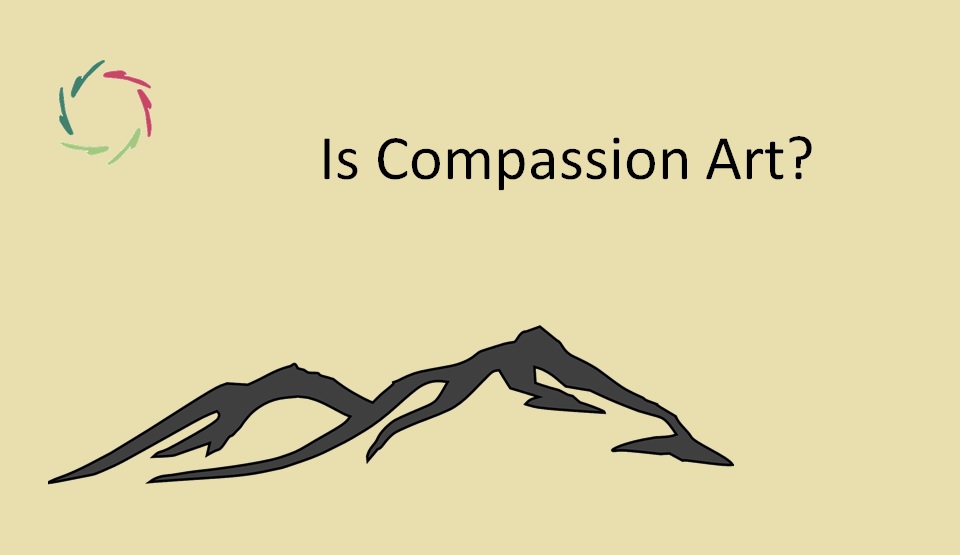Is Compassion Art?

Is a person’s Compassion unchangeable? Or can one enhance it, building further on an innate capacity?
Placebo
To understand Compassion-as-art, we need to differentiate it from placebo-as-lie (which I generally call just placebo). If this is not done, Compassion may be fought against – correctly – by any scientifically minded person.
And that would be a shame, wouldn’t it?
Is Compassion like breathing?
Is Compassion, as an active striving to relieve suffering from deep inside, something that everyone can easily ‘do’? Are we all, basically, equally Compassionate if we want to? Can any good friend be as Compassionate in principle as a professional caregiver?
For instance, compelling evidence shows that men and women can be equally empathic. Yet, women show empathy more frequently, mainly because they are more expected to do so in most cultures.
Note that historically, empathy has been related to art.
Note also that everyone can breathe, and even shout, but not everyone can sing artfully.
Compassion is definitely an art.
One may compare it with playing an instrument. In the case of Compassion, it is the Compassionate person himself who is the instrument.
One can learn from a book how to play the piano, but not as such how to play artfully. One can perfect one’s art. One can think to play it well, yet be an amateur. One can also decide to play or not, or get quickly tired of it, or get bored for a longer time.
Everything artful can be related to Compassion.
Compassionate continuum
In a certain way, a psychopath may have much ‘empathy’ in noticing how others feel and use this knowledge to hurt them. Contrary to this, a psychopath doesn’t know Compassion. He is at the far negative end of the Compassion continuum.
At the other end is a bodhisattva-like figure. In the East, more than in the West, such a figure may see meditation as a means to attain higher levels of Compassion. Rightly so.
In between lies a continuum (or should one say a landscape) of Compassion. It is not the case that everybody in between lies in the exact middle. People are stochastically divided along the continuum. This brings the next question.
Is it possible to move along the continuum?
Not everybody agrees, but in my view, certainly.
For instance, one single positive and meaningful event may let someone move towards more Compassion and vice versa. A mentor or other role model may pull one more towards Compassion.
Teachable?
As I have experienced many times, specific ‘techniques’ may help in realizing a Compassionate stance. I put them between parentheses because they are not instrumental. They are, as a lot in AURELIS, invitational, and rather meditative. Formal meditation may help. A profoundly ethical stance is recommendable.
I integrated these ‘techniques’ in an AURELIS coach course. [see: “Growing towards AURELIS Coach“]
They are therefore not teachable as such, but transmissible ‘deep to deep.’ They are at the same time conceptual and subconceptual, total-person related ― like opening doors and an invitation to pass through. No magic.
Also no banging at the wall beside the door. The latter gives the negative impression that there is no way to get through the wall. There is. It’s called a door. There are even many doors, but they’re pretty special.
Is not art also the search for such doors?


